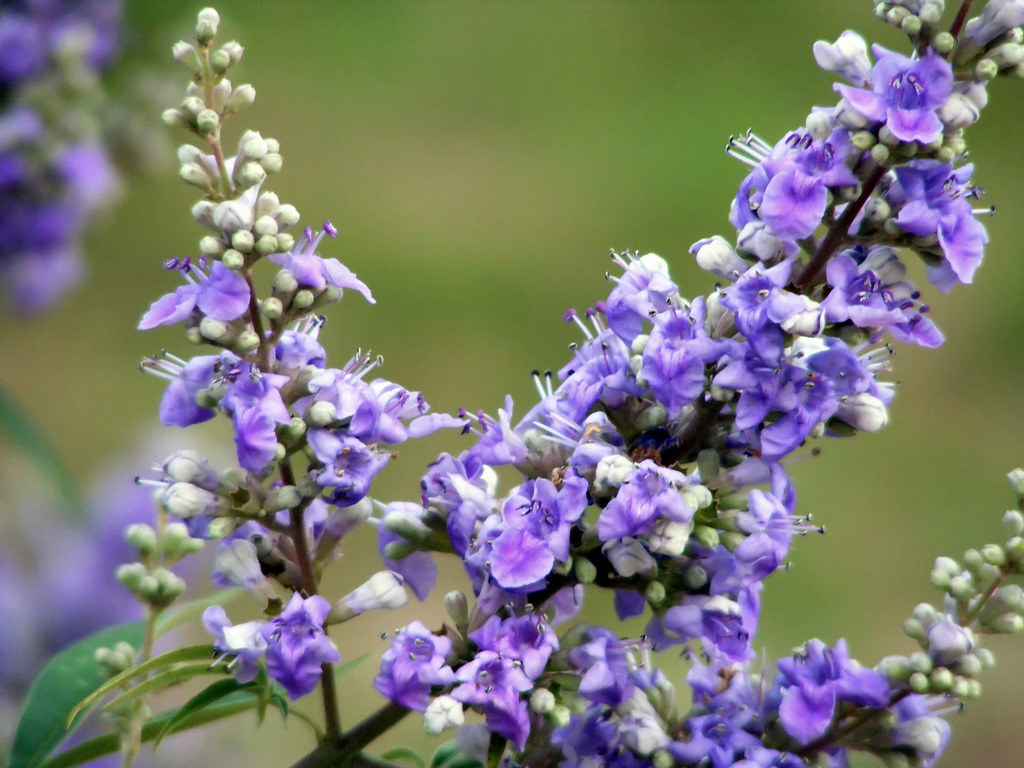Premenstrual tension, more commonly known as Premenstrual Syndrome (PMS), is known to be the bane of the lives of many busy women. It doesn’t have to be that way.
Differing approaches can make naturally occuring processes in the body more tolerable if we take the time to see what our bodies are telling us. Our bodies aren’t machines, but organic entities that require nutritional consideration and, at times of disease, actions that can bring our bodies back into balance.
More Than Just a Nuisance
PMS is known to be associated in some extreme cases with increased incidences of anti-social behavior, accidents, illnesses, and psychiatric crises. Drops in standards at school, forgetfulness and decreased punctuality are also known to occur.
Aggressive behavior and inexplicable mood swings resulting from PMS can affect relations with family and friends. Temporary agoraphobia (fear of open or public places), panic attacks, phobias, a feeling of detachment and feelings of suspicion are also manifestations of extreme cases of pre-menstrual syndrome (Lockie & Geddes p.66, 67).
When looking at our lifestyles, we must include patterns of food consumption as possible contributory factors. Researchers have found that PMS patients consume 62% more refined carbohydrates, 275% more sugar, 79% more dairy products, 78% more sodium, 77% less manganese, 53% less iron and 52% less zinc than women who are free of symptoms (Lockie & Geddes p.68).

Patterns of food consumption must be taken into consideration.
The increased consumption of meat, poultry and their products that have been nurtured on hormones creates cumulative deposits within our bodies. Those hormones include the sex hormones progesterone, testosterone and estrogen.
Introduced this way into our bodies they can lead to obesity, infertility, diabetes, dwarfism, gigantism, kidney disease, hypertension, early puberty, hypoglycemia, the masculinzation of females and cancer. They can also cause abortions, change the menstrual cycle and cause excessive breast and uterus tenderness (Colbin p.163,164).
One woman who visited nutritionist Annemarie Colbin complained of painful swelling of the breasts due to PMS. Annemarie recommended that the woman cease taking her daily quart of milk.
that women with problems of the reproductive system should avoid all foodstuffs that relate to the reproductive system of animals or contains natural or artificial hormones i.e milk and milk products, eggs, and the meat of animals raised on estrogen (Colbin p.153, 283).
For those of us who might find the task more difficult, there are self-help approaches that can be made. As a step towards eliminating the causes, naturopaths recommend a high fiber diet, low fat, increased vegetable proteins, fruit and whole grains. They also recommend a diet high in calcium and iodine as that found in beans, leafy greens, alfalfa and kelp (Stein p.256, 257).
Natural Remedy for Age-long Malady
A medicinal tree renowned of old for helping women through the menopause is the chaste tree also known as Vitex Agnus or in Arabic as bengenkusht, kef maryam or habb el-faqad (Manniche p.155). Recent studies have found it to be effective in PMS and even in reducing acne associated with PMS.
The dark berries imitate the action of the female hormones estrogen and progesterone. It acts on the pituitary gland and balances the ovarian hormones by increasing the level of progesterone in relation to estrogen. Consequentially, this regulates the menstrual cycle thus alleviating PMS symptoms.
A recent German study found chaste tree to be more effective than Vitamin B6 supplements in PMS. This double-blind study involved 175 women who were followed over a period of 3 menstrual cycles. The women took either chaste tree together with a placebo, or Vitamin B6 supplements.
When chaste tree was taken, milder symptoms of abdominal bloating, breast tenderness and irritability occurred. There were improvements in 77% of the women who took chaste tree and 61% of the women who took B6 supplements (New Straits p.1).
In the 1987 trials of Exeter University and Gerard House (UK) led by statistician Susan Turner, 600 women who had a suitable range of symptoms were selected (Mills p.32). Utilizing the double-blind method, there were good results for 3 categories of PMS sufferers:-
- PMT-H – fluid retention, breast tenderness, abdominal bloating, weight gain.
- PMT-A – irritability, nervous tension, mood swings, anxiety.
- PMT-D – depression, crying, confusion, forgetfulness and insomnia (Mills p.39).

Chaste tree is known to reduce PMS symptoms.
In the German authorities’ listing of chaste tree (Bundesanzeiger Nummer 90, vomm 15,05,85) no contraindications are listed. However, under ‘Side-Effects’ chaste tree occasionally causes menstruation to start earlier after childbirth due to its action on the pituitary gland (Mills p.34).
An infusion can be taken by pouring a cup of boiling hot water on 1 teaspoon of the ripe berries. Leave to infuse for 10-15 minutes. Drink 3 times daily. It is also available as a tincture whereby 1-2 ml can be taken 3 times daily (Hoffman p.185).
Health and well-being expert Alix Kirsta recommends more sleep and relaxation exercises for PMS sufferers. Wearing loose clothes also helps to allow the body to relax (Kirsta p.174).
This article is from Science’s archive and we’ve originally published it on an earlier date.
References:
- Colbin. Annemarie. “ Food & Healing”. US. Ballantine Books. 1986.
- Hoffman. David. “The Holistic Herbal”. Britain. Element Books. 1988.
- Kirsta. Alix. “The Book of Stress Survival”. Britain. Unwin Paperbacks. 1988.
- Lockie. Andrew & Geddes. Nicola. “The Women’s Guide to Homeopathy”. Britain. Hammish Hamilton. 1992.
- Manniche. Lisa “An Ancient Egyptian Herbal” Britain. British Museum Publ. Ltd. 1989.
- Mills. Simon. Woman Medicine: Vitex Agnus-Castus”. Britain. Amberwood Publishing Ltd. 1992.
- Stein. Diane. “The Natural Remedy Book for Women”. US. Cassandra Press. 1992.
- New Straits Times-Management Times. “Herbs Alleviate Symptoms of PMS”. 1-2. Asia WorldSources Inc. 1-2. Healthy News. Health World Online. 09/03/01.
